Bitsgap / 2023 - 2024
Bitsgap - AI Trading Assistant
Introduction
AI Assistant Development Case Study - AI Trading Assistant (2023-2024)
A product initiative at Bitsgap focused on developing an AI-powered trading assistant. The assistant was designed to enhance user experience while addressing key trading pain points with practical AI.
The Problem
Traders feel overwhelmed. Despite using automated tools, many still rely on manual research - reading news, monitoring markets, and following influencers - just to feel "in control" of their trades. We believed AI could help.
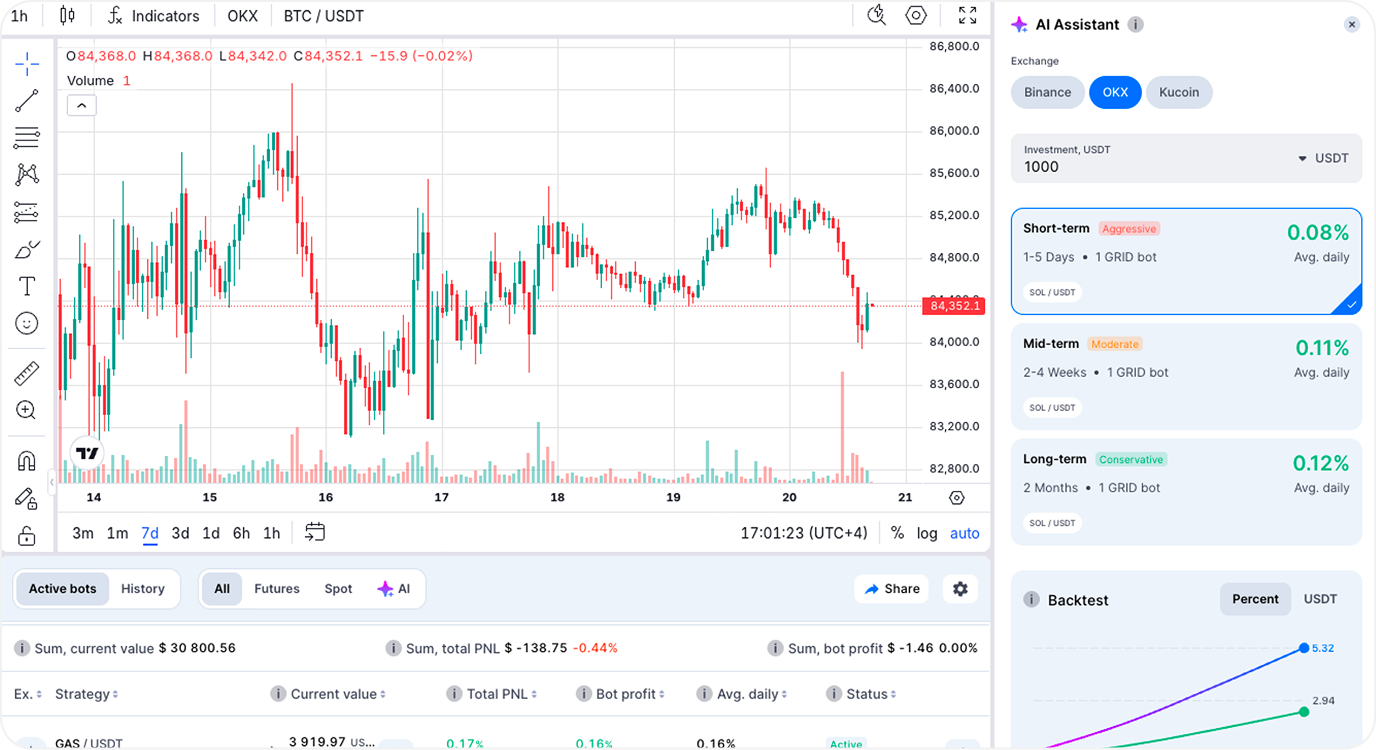
Our Initial Hypothesis
What if we created an AI assistant that curates news and trading opportunities tailored to each user's "strategy" and "risk appetite"?
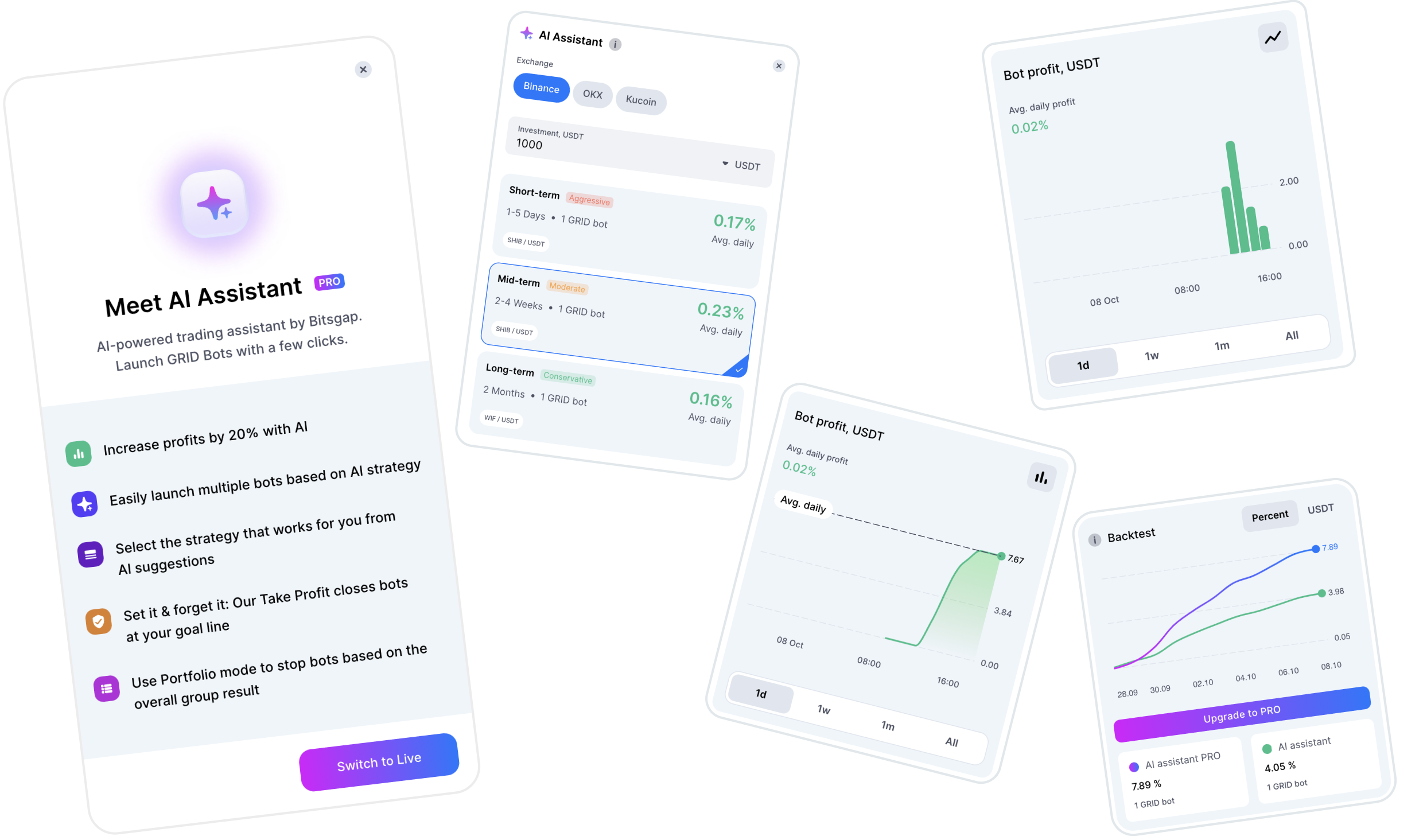
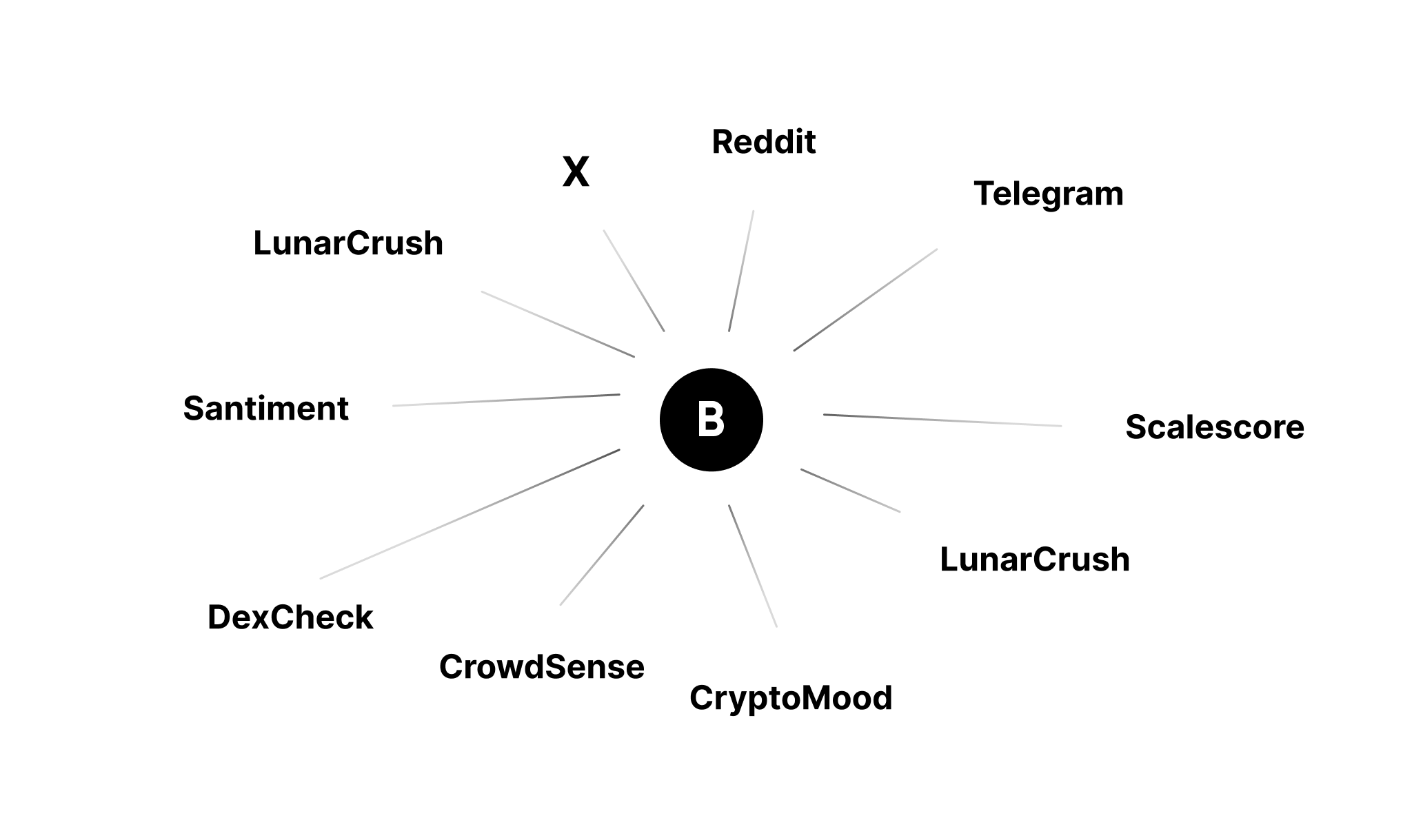
But First, We Needed Data
To validate our assumptions, we launched a comprehensive survey to understand how traders make decisions and how AI can help reduce "research overload".
Survey Results
We contacted 1,000+ users and received 258 responses. Here's what we discovered:
Respondents
1,000+ users contacted, 258 responses received.
Daily News Consumption
18% said they read news daily, even while using automation.
Following Influencers
40 users followed popular traders for insights.
Key Insight
8% tracked Twitter, news channels, and forums - but only traded on spot, prioritizing safety.
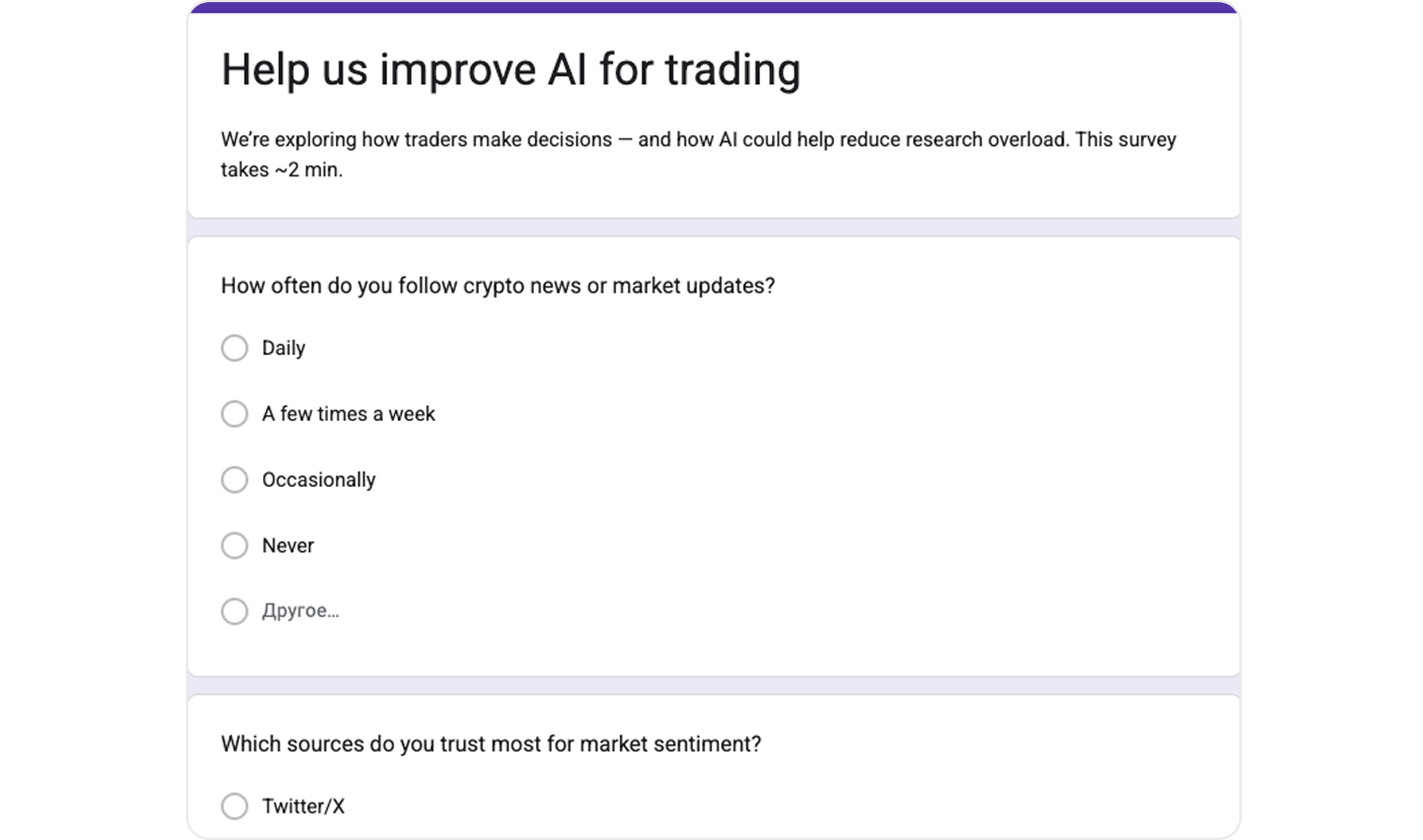
Deep Dive: In-Depth Interviews
We followed up with 10 in-depth interviews to understand the deeper motivations and pain points of our users.
Discovery Methods
How they discover trading opportunities and what sources they trust most.
Decision Process
Understanding their decision-making process and what factors influence their trades.
Pain Points
Where they feel uncertain and what causes the most anxiety in their trading.
From MVP to Real Users
With our research complete, we moved to the next phase: building and testing our AI Trading Assistant with real users.
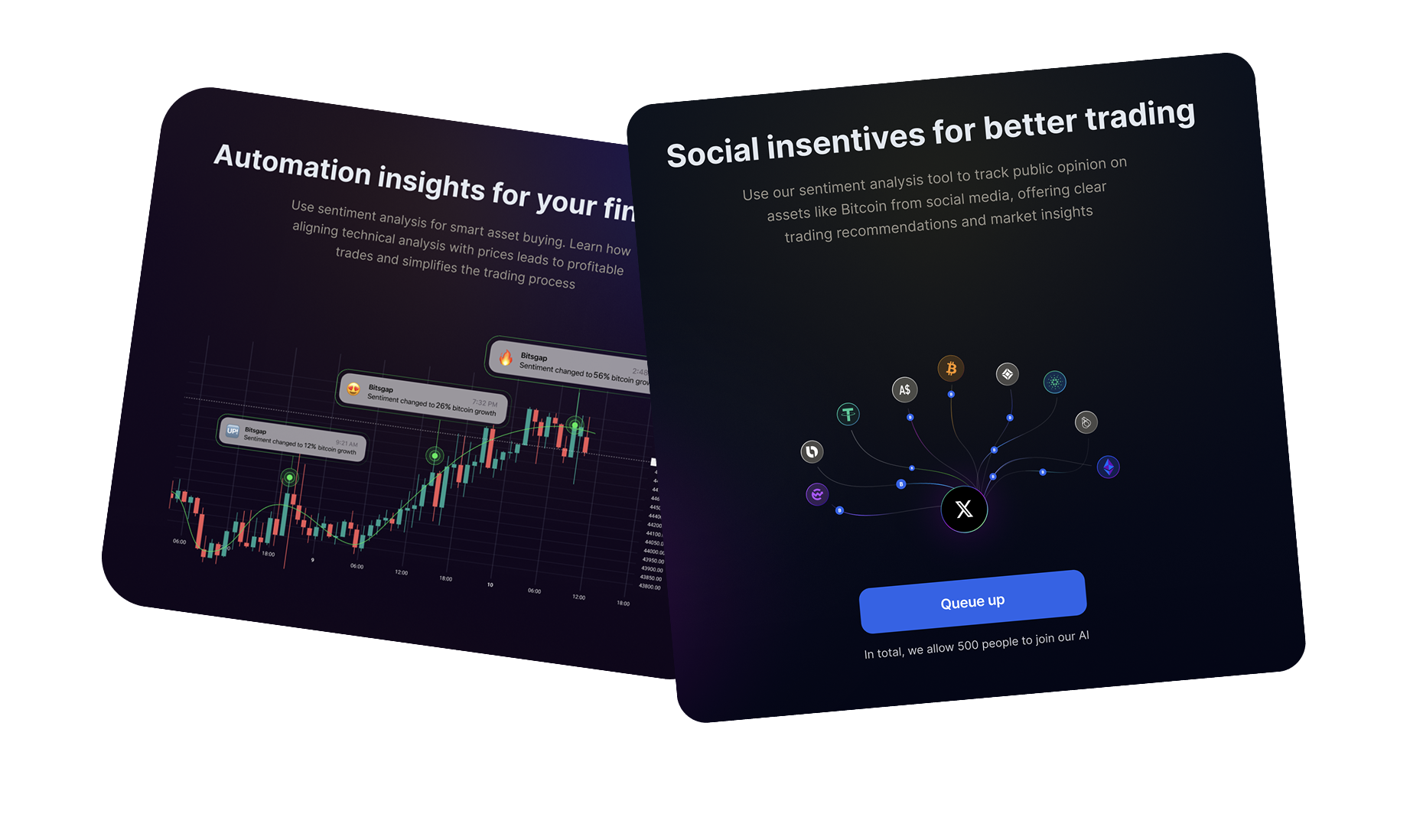
Validating Our Hypothesis
To confirm our assumptions, we implemented a comprehensive testing strategy:
Landing Page with Pre-order
Created a landing page with a pre-order waitlist and real paywall (card pre-auth) to test "genuine interest".
Targeted Campaign Results
Ran a targeted campaign that resulted in 58 paid subscribers ready to wait for the product.
Subscription Strategy
We didn't expect such strong initial interest. We tried to make the subscription as convenient as possible, but we quickly discovered a major challenge.
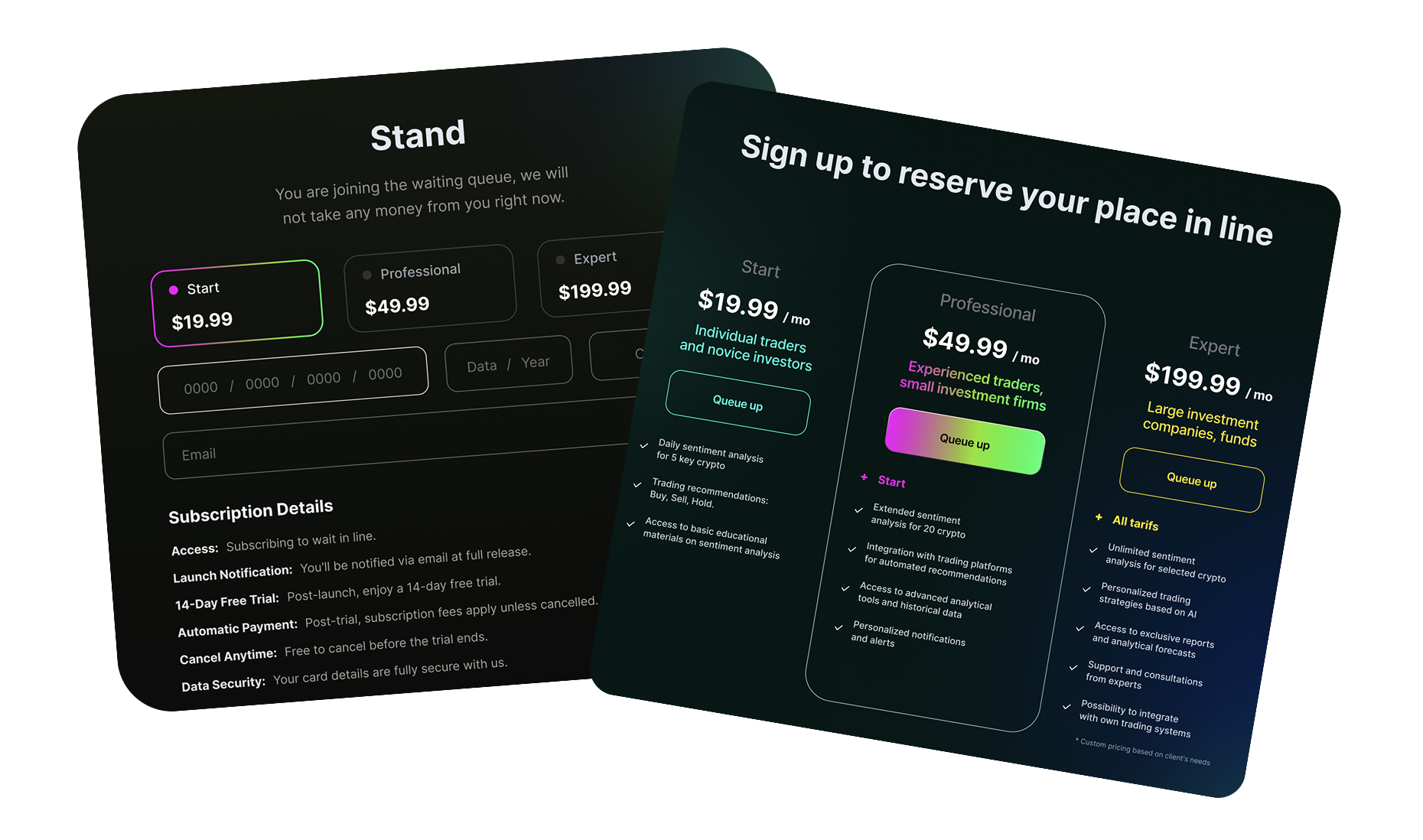
The Reality Check: "Sentiment Analysis" = Expensive
Our initial approach hit a major roadblock. APIs for Reddit, Twitter/X, and news feeds cost a lot at scale. After technical review, we had to pivot our strategy.
Our Pivot Strategy
Instead of relying on expensive external APIs, we leveraged our internal resources and data:
Internal Data Advantage
Used our own 5 years of trading data instead of external "sentiment analysis".
Backtesting Integration
Integrated our existing backtesting engine to validate trading strategies.
Internal AI Focus
Focused on "internal AI capabilities" rather than expensive external NLP APIs.
Subscription Options for Every Trader
We created subscription options tailored for traders at every level, focusing on our verified data rather than external news analysis.
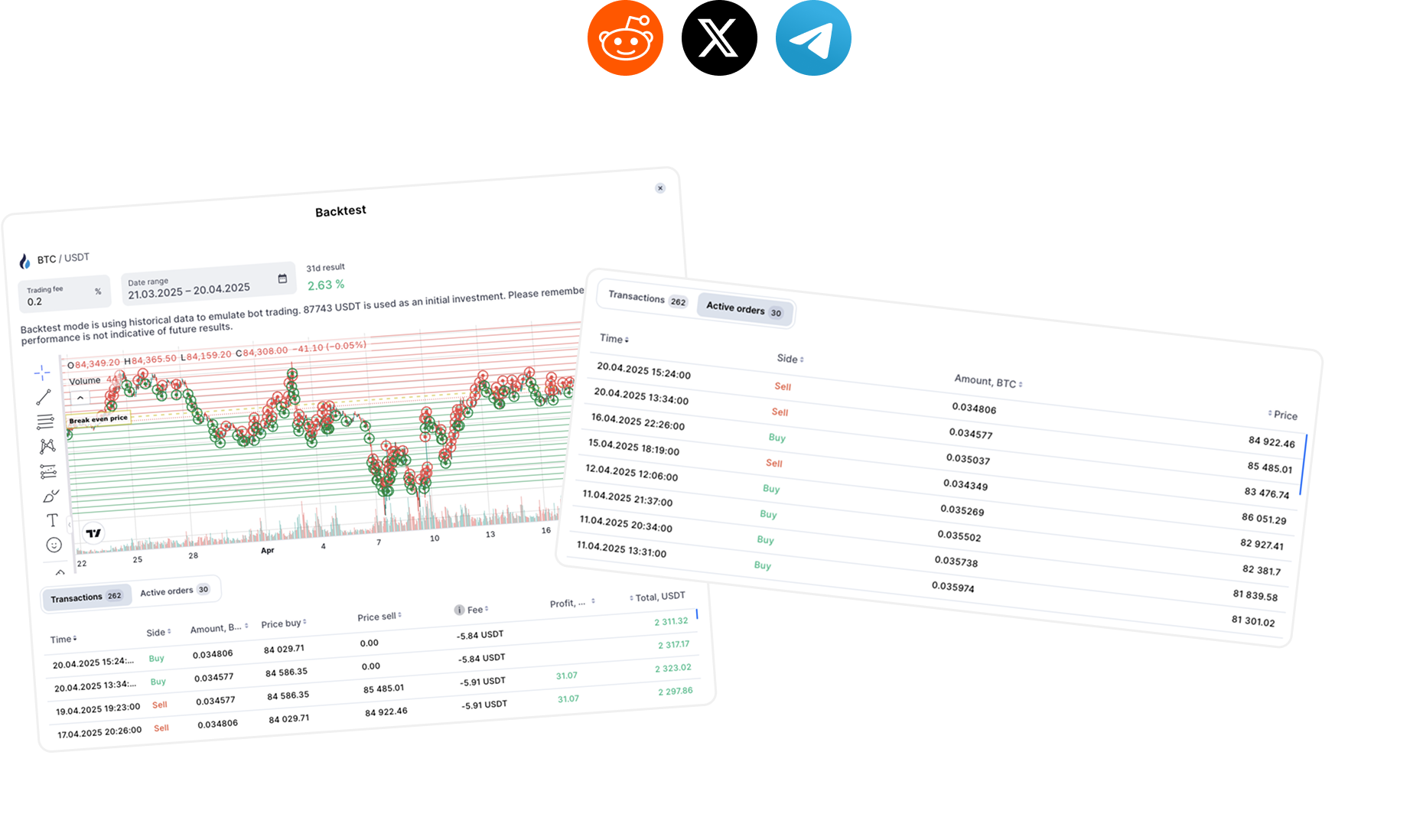
A Completely Different Product
Yes, we pivoted to focus on a new product entirely. Our messaging shifted to: "Try our artificial intelligence trading assistant, created based on our 'verified data', and not based on news analysis."
80% of users opted in again and shared valuable suggestions for improvement.
Design and Prototyping
We started designing and prototyping with a clear north star: "zero-friction installation". We divided the process into 4 key steps:
One-Click Onboarding
Streamlined user experience with minimal setup required.
Three Risk Levels
Conservative, Balanced, and Aggressive options to match user preferences.
Smart Pair Recommendations
AI-powered suggestions based on user's risk profile and market conditions.
Clear UI with Probability Ranges
Transparent interface showing probability ranges instead of vague "signals".
Component Library: The Interface Behind the AI Assistant
We developed the design and integrated a comprehensive design system, creating several key widgets to enhance user experience.
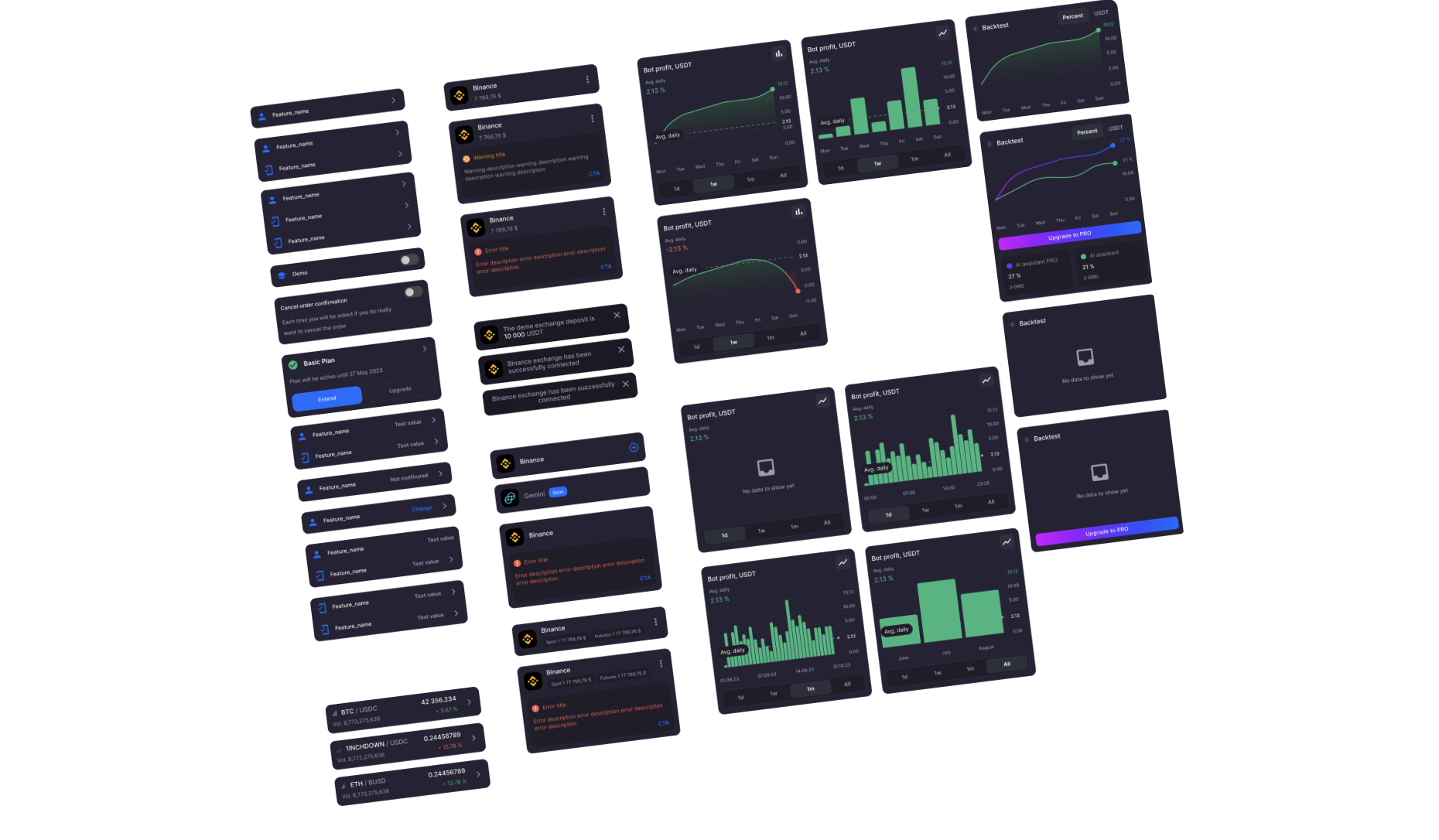
Key Widgets and Features
We created multiple widgets to provide a comprehensive trading experience:
Strategy Selector
Intuitive interface for choosing trading strategies based on risk profile.
Profit Simulation
Real-time profit simulation to help users understand potential outcomes.
AI Suggestions Panel
Smart recommendations powered by our internal AI and verified data.
Smart Alerts & Notifications
Intelligent notifications to keep users informed without overwhelming them.
Product Launch
Yes, we successfully launched with internal quality control and team testing showing promising results.
Updated Marketing Site
Refreshed our marketing presence to reflect the new AI assistant capabilities.
Onboarding Email Sequence
Created a comprehensive email sequence to guide new users through the setup process.
Announcement Banner
Added announcement banner on web app to inform existing users about the new feature.
Live Prototype for Bitsgap
Then a live prototype for Bitsgap was created, powered by artificial intelligence and our verified trading data.
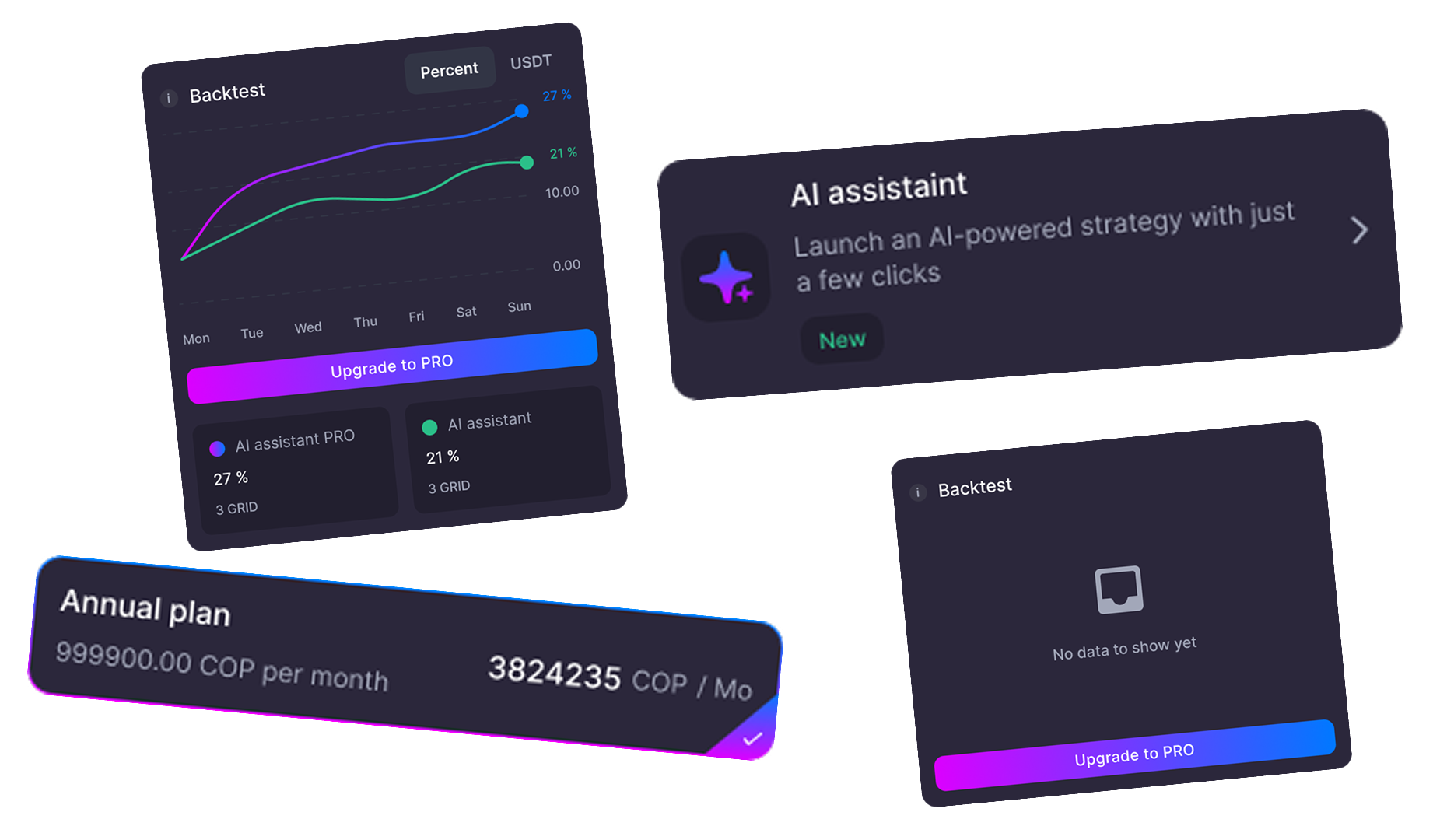
The Launch Exceeded Expectations
Our AI Trading Assistant launch delivered impressive results across multiple key metrics:
Trading Efficiency
Redesigned AI trading assistant achieved +40% trading efficiency improvement.
User Registrations
Redesigned onboarding flow resulted in +50% user registrations.
Support Requests Reduction
Deployed AI chatbot reduced incoming support requests by 40%.
High User Adoption
80% of early users joined the test, demonstrating strong product-market fit.
Key Learnings and Results
Our journey taught us valuable lessons about user needs and business goals:
User Needs
"Clarity, safety, and speed" are the three pillars of successful trading tools.
Business Goals
Monetization, retention, and differentiation can be achieved through thoughtful product design.
Cost Efficiency
We achieved our goals without burning money on expensive external APIs by leveraging internal data.
Product Adoption Metrics
The numbers speak for themselves - our AI Trading Assistant has delivered measurable results:
 Young
Young